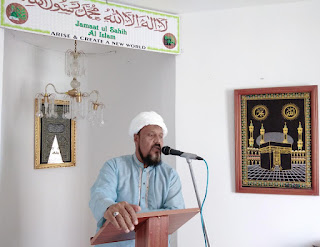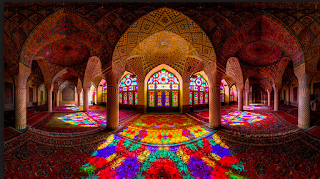
Alhamdulillah, Muslims around the world are entering into the holy month of Ramadan, observing fasting from dawn to dusk and also channelizing their time and inner resources for the contemplation of the Divine, in devotional worship and supplications to the Lord of Mercy, Summa Alhamdulillah. Ramadan is also a time to reform our impulses by getting rid of greediness and covetousness, and enlarge one's moral compass by standing up for the promotion of the common good, through pious works and charitable deeds that empower the indigent and other less-fortunate ones in society. Along with good deeds, the believers seek to gain the bounties of Divine blessings and favours of special nearness through sincere worship and fervent supplications throughout the Holy Month. Reproduced below are the Qur'anic commandments and Prophetic Traditions (Ahadith) on fasting in the month of Ramadan, forming the foundational values of the Muslim devotional practice and spiritual expectations of Divine approval and sublime rewards, Insha Allah, Aameen.
Qur’an on Fasting

In Surah Al Baqarah, Allah (swt) says:
'You who believe, fasting is prescribed for you, as it was prescribed for those before you, so that you may be mindful of God.
Fast for a specific number of days, but if one of you is ill, or on a journey, on other
days later. For those who can fast only with extreme difficulty, there is a way
to compensate– feed a needy person. But if anyone does good of his own accord,
it is better for him, and fasting is better for you, if only you knew.
It was in the month of Ramadan that the Qur’an was
revealed as guidance for mankind, clear messages giving guidance and
distinguishing between right and wrong. So any one of you who is present that
month should fast, and anyone who is ill or on a journey should make up for the
lost days by fasting on other days later. God wants ease for you, not hardship.
He wants you to complete the prescribed period and to glorify Him for having
guided you, so that you may be thankful.






















